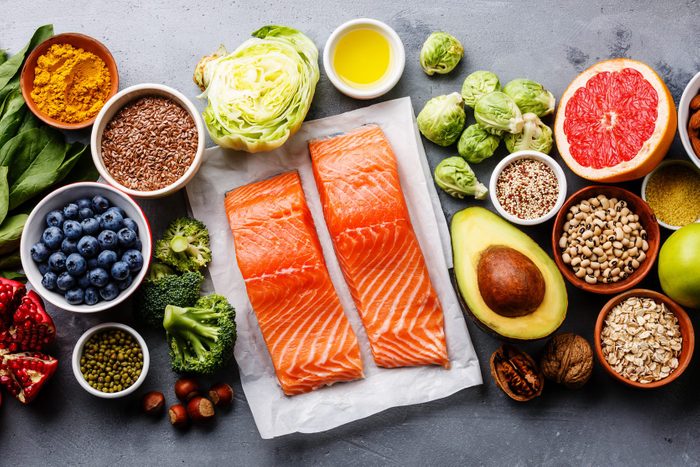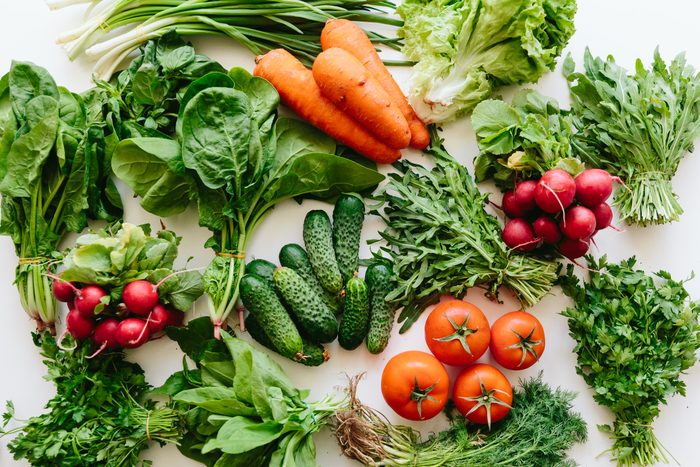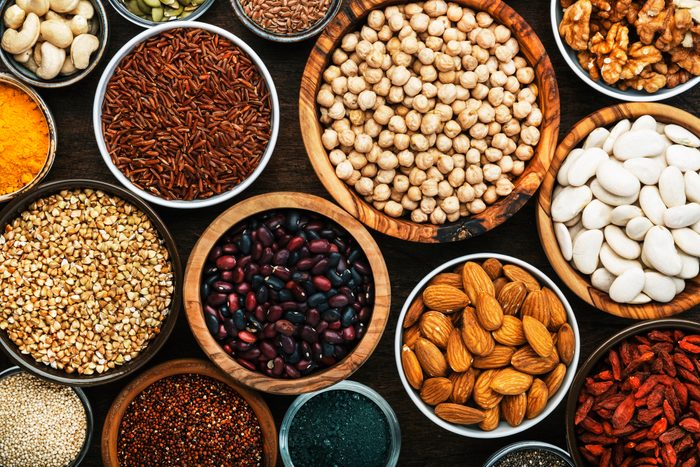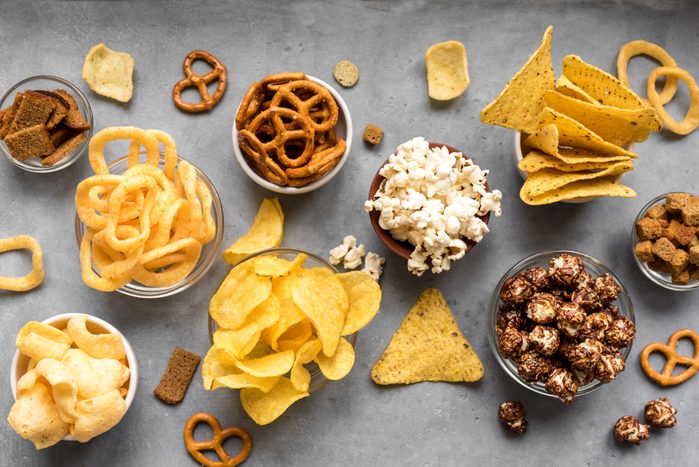
It goes without saying that our lungs play an essential role in our health—after all, they help us breathe. But lung function decreases with age…so, especially in an era when respiratory viruses have us on higher alert, how can you optimize your lung health?
Here’s How Many Americans Have Had the Flu So Far This Year, the CDC Says
Many diet and lifestyle factors affect the wellness of our lungs. Some are obvious—we know cigarette smoke is likely to harm the lungs; we know a little fresh air and exercise are cardiopulmonary wins. However, some lung health practices aren’t so well known—take, for example, the fact that some experts say there are foods and nutrients that can help you breathe better for life.

The best foods for lung health
Eating more nutrient-dense food is a great way to support your lung health. A 2022 study showed that high intakes of fruit and vegetables can significantly decrease the occurrence of lung cancer, to start.
Dr. MeiLan Han, MD, MS is a professor and the chief of Pulmonary & Critical Care Medicine at the University of Michigan, as well as a spokesperson for the American Lung Association and the author of Breathing Lessons: A Doctor’s Guide to Lung Health. Dr. Han says data show how a Mediterranean diet is best for lung health. The Mediterranean diet is full of fresh fruits, vegetables, whole grains, beans, nuts, seeds, fish and olive oil as the main healthy fat. The diet suggests practicing moderation with foods like poultry, eggs, cheese and yogurt, and saving meat and sweets to eat only occasionally.
Amy Bragagnini, MS, RD, CSO, agrees. Bragagnini is an oncology nutrition specialist at Trinity Health Lacks Cancer Center in Michigan, as well as a spokesperson for the Academy of Nutrition and Dietetics. “The Mediterranean diet is generally the ‘go-to’ diet to help lower risk of disease,” she says. “It is very high in fruits and vegetables, fish—for their anti-inflammatory omega-3 fatty acids, and olive oil—which is a source of anti-inflammatory antioxidants, such as vitamin E and polyphenols, which may be helpful in cases of asthma. Really,” Bragagnini says, “an overall diet that is plant-based and that contains lean protein, plenty of fiber and that limits intake of increased concentrated sweets is a great one for the entire body…including the lungs!”
The Best and Worst Diets for Your Cholesterol, Says UCLA Cardiologist

Veggies for lung health
Bragagnini suggests focusing on whole foods for great lung health. “Getting (at minimum) five servings of fruits and vegetables into your daily diet will help your body achieve a healthy oxygen balance,” she says. “Brussels sprouts and carrots are great fall vegetables that you can easily roast in the oven. They contain vitamin C and beta-carotene, which are important nutrients for lung health, especially for someone with a smoking history.”
Bragagnini says apples are also a good pick for a healthy snack because their high amount of flavonoids and antioxidants may be helpful to reduce risk of chronic obstructive pulmonary disease, or COPD. She also recommends tomatoes and tomato products containing lycopene, “which is an antioxidant that may help reduce lung irritation.”
Green tea may be another healthy addition, she says, as it contains epigallocatechin gallate (EGCG), which is a catechin that may have anti-inflammatory properties in the body, beneficial for someone with lung disease.
What Are the Heart-Healthiest Foods? A Cardiologist Just Opened Her Fridge for Us

Don’t forget about protein for your lungs
Bragagnini said protein is another important nutrient to focus on for overall lung health. “Pause for a second and take a deep breath,” she says. “Think about the muscles that help you to expand your lungs. Achieving adequate protein will aid in this process. Speaking of protein-rich foods, beans and nuts are also a great source of magnesium. According to various scientific research, magnesium can help reduce inflammation in the lungs, which may help support adequate lung health.”
Bragagnini says people who have lung diseases like COPD or lung cancer may have difficulty breathing. “In my experience as an oncology dietitian, I have found that these conditions require adequate protein to prevent muscle wasting and weight loss. Liquid oral nutritional supplements may be a good choice because if you are struggling to breathe, it is easier to sip on a nutrition protein-filled supplement than to consume a big meal.”
Here’s How Much Protein You Really Need in a Day, with a Kidney Doctor’s Wisdom

Foods to avoid
The next step to support your lung health is to reduce sodium from your diet. “Consuming too much sodium may lead your body to ‘swell’ and hold on to excess fluid; this may make your lungs work extra hard because of the additional retained fluid,” Bragagnini says. She advises her clients to begin checking product labels in their pantry. “Try to begin to weed out products that contain over 500 milligrams (mg) of sodium. These include canned soup, packaged snack foods (potato chips, cheese curls), boxed rice meals and various condiments like soy sauce.”
“Per the American Heart Association, we should aim to consume less than 2,300 milligrams of sodium per day. My advice is to start slow. We tend to build a tolerance for salty-tasting foods, so don’t plan on cutting out all your favorite foods at once,” Bragagnini suggests.
For more wellness updates, follow The Healthy on Facebook, Instagram, and Twitter. Keep reading:
- What Are the Best Foods to Fight Cancer? Here’s What’s in a Cancer Dietitian’s Fridge
- Here’s What to Eat for Period Cravings, Say Women’s Nutrition Specialists
- Howie Mandel Details His Obsessive-Compulsive Disorder: ‘People Need to Know They Are Not Alone’
- Eating This Nut Will Help Your Gut and Reduce Inflammation, New Study Says

